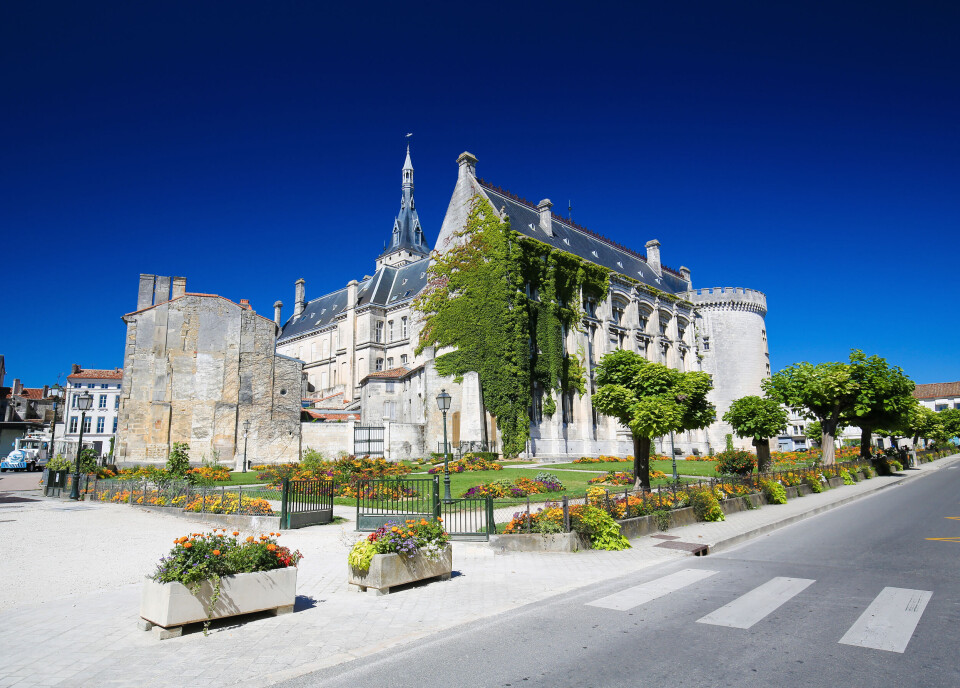-
Cold Christmas in France, but little chance of snow
High-pressure system will move into France from north-east at the start of next week
-
British ‘Puppet Master’ conman in French jail wins phones back on appeal
Robert Hendy-Freegard was given a six-year sentence after hitting two gendarmes with his car
-
Alleged British hacker in jail in France offers to help with police data breach
Recent attack targeted police files
Controversy as French town bans people sitting or lying down in centre
The decree in Angoulême prohibits locals from staying seated, laying down, or standing up “without moving”

Authorities in western France have banned people from sitting or lying down in the town centre.
Angoulême, in Charente (Nouvelle-Aquitaine), has prohibited people from staying seated, laying down, or standing up “without moving”.
Offenders face a fine of €35 for a first offence, rising to €150 for a second one.
The decree first appeared on July 11. It was signed by the deputy mayor for prevention and security in the town, Jean-Philippe Pousset.
He says the aim is to “fight against groups of individuals, often in a state of inebriation…who appropriate spaces and public areas such as pavements and benches”, and block pedestrians in town.
He told local newspaper France Bleu La Rochelle that many people in the town centre “drink even though there is an anti-alcohol decree; they often have dogs, and they are violent”.
He said: “We must ensure the safety of the town. This decree is a way to say: “Move, or leave, or behave differently.”
He added the Mairie and local police had received “numerous complaints from local residents and shopkeepers” about noise, damage, obstructions, and fights “on a daily basis”, which “significantly disturb public peace and quiet”.
The current decree is set to last for a year, and will apply:
- From April to October: During the hours of 10:00 to 02:00
- From November to March: During the hours of 10:00 to 21:00
It will apply particularly to areas around public buildings and gardens, parks, squares, and anywhere accessible to the public, including the main town centre, the train station, the Hôtel de Ville, and the Saint-Martial church.
The full decree states: “Any abusive and prolonged occupation of streets and other public spaces is prohibited [by individuals] grouped together, immobile or not very mobile, not in transit and generating nuisances (noise, damage, threats, etc.) that disturb the peace and quiet of passers-by or residents.
“[It is also forbidden to] sit or lie down when this constitutes an obstacle to pedestrian traffic and access to buildings bordering public thoroughfares, as well as to stand when this clearly hinders the movement of people, the ease of passage or safety in public thoroughfares and spaces.”
‘We’re doing nothing wrong’
The decree has not been welcomed by everyone. One local, Cédric Larré, told departmental newspaper Charente Libre the decree had left him almost speechless.
He said: “The Mairie wants to move us on even though we’re doing nothing wrong.”
Mr Larré said that people he knows - including through homeless associations, and squatters - now fear further retributions just for being in the town.
Some residents said “the council has made a very good choice”, but others have called it “an attack on freedom”.
France’s League of Human Rights association has filed an appeal.
François-Xavier Corbel, its legal officer, told La Nouvelle Republique the measure is a "very classic anti-precarious decree [...] which seeks to drive out the most precarious from the city centres without them causing disturbances to public order”.
The activist added: “Police enforcement is often discriminatory. We wonder about the legality of the text and we reserve the right to attack it before the administrative court.”
























